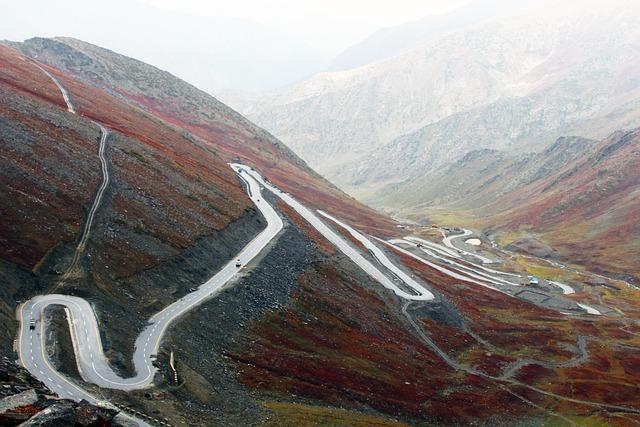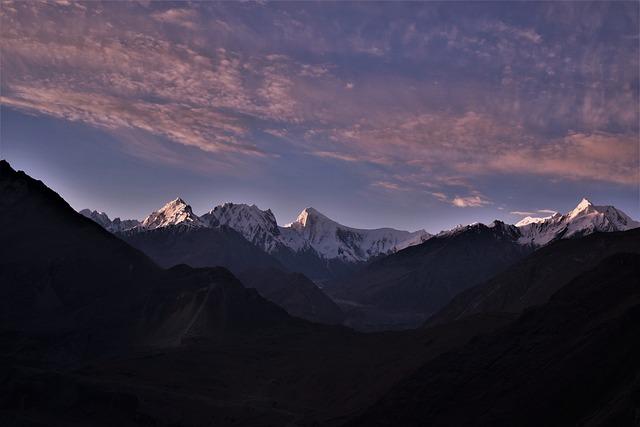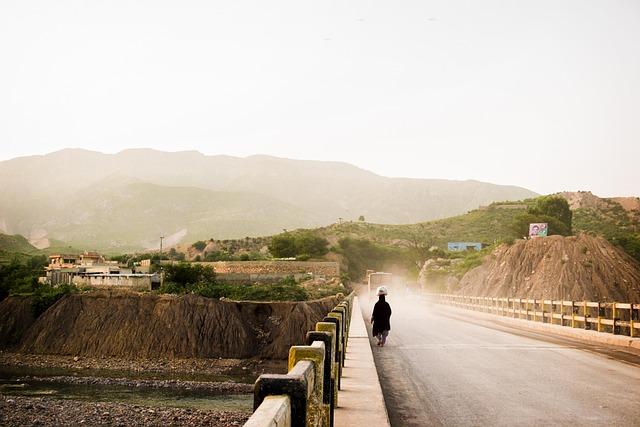In an era marked by shifting alliances and the reconfiguration of power dynamics, Pakistan finds itself at a crucial crossroads in the landscape of international relations. Geographically positioned at the confluence of South Asia, Central Asia, and the Middle East, the nation is not merely a spectator but a key player in a complex geopolitical chessboard. From its historical ties with China and the United States to its contentious yet strategic relationship with India, Pakistan’s interactions are layered and multifaceted. As global challenges such as climate change, terrorism, and economic interdependence reshape diplomatic dialogues, Pakistan’s strategic importance continues to evolve, making it a focal point for policymakers and analysts alike. This article delves into the intricacies of Pakistan’s role on the world stage, examining how its historical context, regional aspirations, and international partnerships influence its position in a rapidly changing global order.
Pakistan’s Geopolitical Landscape and Its Implications for Global Alliances
With its strategic location at the crossroads of South Asia, Central Asia, and the Middle East, Pakistan’s geopolitical significance has seen an evolution influenced by shifting global alliances. It serves as a vital link for trade routes, energy corridors, and military logistics. The country is a pivotal player in the China-Pakistan Economic Corridor (CPEC), part of China’s Belt and Road Initiative (BRI), which not only fosters economic development but also strengthens bilateral ties with Beijing. Pakistan’s collaboration with global powers can be categorized into distinctive spheres, fostering partnerships that transcend mere transactional diplomacy. Key alliances include:
- Strategic Partnership with China: Enhancing economic and military cooperation.
- Relations with the U.S.: Historically complex, now focused on counterterrorism and regional stability.
- Engagement with Islamic Countries: A cornerstone for diplomacy and trade in the Muslim world.
The dynamic nature of Pakistan’s foreign relations necessitates a nuanced understanding of its regional aspirations and global commitments. Its active role in multilateral forums such as the Shanghai Cooperation Organization (SCO) and the Organization of Islamic Cooperation (OIC) reflects its ambition to act as a bridge between opposing powers, particularly in situations involving India and Afghanistan. With ongoing shifts in economic and military landscapes, the implications for global alliances are profound, as nations reassess their positions based on Pakistan’s influence. Here’s a brief overview of current global perceptions towards Pakistan:
| Country | Perception | Strategic Interest |
|---|---|---|
| United States | Guarded Cooperation | Counterterrorism |
| China | Close Ally | Trade and Defense |
| India | Rival | Military Balance |
| Saudi Arabia | Supportive Partner | Economic Aid |

Navigating Economic Partnerships: Opportunities and Challenges for Pakistan
As Pakistan navigates the complex landscape of economic partnerships, it finds itself at the crossroads of opportunity and challenge. The nation’s strategic geographic location positions it as a vital player in regional trade routes, particularly with initiatives like the China-Pakistan Economic Corridor (CPEC). This partnership opens up avenues for infrastructure development, energy projects, and enhanced connectivity, presenting significant potential for economic growth. However, harnessing these opportunities requires a delicate balance of maintaining sovereignty while fostering collaborative ventures. The intricate negotiations that these partnerships entail often demand a nuanced understanding of international dynamics and regional geopolitics.
On the flip side, challenges abound as Pakistan engages with various global economic players. Factors such as fluctuating foreign investment, fluctuating currency rates, and shifting political landscapes can complicate these relationships. Furthermore, it faces the necessity to address internal issues such as regulatory framework, ease of doing business, and regional stability, which can hinder its attractiveness as a partner. In navigating these waters, Pakistan must also prioritize sustainable development and social equity to ensure that economic growth benefits the broader population. Achieving this balance will shape the effectiveness and longevity of its economic partnerships.

Regional Security Dynamics: Pakistan’s Role in Counterterrorism and Stability
The landscape of regional security dynamics continues to shift, with Pakistan holding a pivotal position in counterterrorism efforts and stability within South Asia. As a nation that has faced the brunt of terrorism, Pakistan has developed a comprehensive framework to address these challenges, actively participating in international initiatives aimed at enhancing security cooperation. The intertwined nature of politics and security in the region has led Pakistan to forge strategic partnerships that bolster its counterterrorism capabilities, including collaboration with neighboring countries and global powers. Through intelligence sharing, joint operations, and capacity building, Pakistan works not only to mitigate its own security threats but also to contribute to a broader stability in the region that can benefit all involved nations.
Moreover, Pakistan’s geopolitical significance is underscored by its role in various multinational forums and peacekeeping operations, reflecting its commitment to regional peace. The country’s military alliances and engagement in diplomatic dialogues serve to strengthen its influence on regional security matters. Key elements that define Pakistan’s strategic approach include:
- Counterterrorism Legislation: Stricter laws and enhanced enforcement to combat extremist elements.
- Community Engagement: Involving local communities in counter-terror initiatives to promote resilience.
- Regional Cooperation: Partnerships with countries like Afghanistan and China to tackle shared threats.
These elements collectively amplify Pakistan’s role, illustrating its transition from being perceived as a source of instability to an active participant in fostering peace and security in South Asia.

Strategic Recommendations for Strengthening Pakistan’s Diplomatic Engagements
To enhance Pakistan’s role in the international arena, it is vital to create a multi-faceted diplomatic strategy that leverages its unique geopolitical position. First, strengthening relationships with immediate neighbors through bilateral dialogues can pave the way for enhanced trust and cooperation. This can be achieved by:
- Engaging in regular diplomatic dialogues to resolve border issues and enhance trade.
- Establishing cultural exchange programs to foster mutual understanding.
- Joining regional organizations that encourage collective effort towards peace and stability.
In addition to regional efforts, Pakistan should prioritize strengthening ties with global powers. By strategically aligning with nations that share similar security and economic objectives, Pakistan can enhance its standing on global platforms. To this end, it is important to focus on:
- Building alliances based on shared economic interests in emerging markets.
- Participating in multilateral forums to assert its viewpoint on global issues.
- Leveraging technological collaboration to drive economic growth and innovation.
The Conclusion
As the world navigates the complex currents of evolving international relations, Pakistan stands at a unique crossroads, leveraging its strategic position to influence regional dynamics while managing multifaceted global partnerships. From its pivotal geographic location connecting South Asia, Central Asia, and the Middle East, to its growing role in organizations like the Shanghai Cooperation Organization and the China-Pakistan Economic Corridor, the nation’s significance is underscored by its ability to adapt and respond to changing geopolitical landscapes.
The interplay of political alliances, economic endeavors, and security considerations will continue to shape Pakistan’s trajectory on the global stage. As it faces both challenges and opportunities, the way forward hinges on a delicate balance of diplomacy, economic development, and national security.
understanding Pakistan’s role in this interconnected world necessitates a nuanced perspective—one that recognizes not only the weight of its historical legacy but also the potential for cooperation and growth amidst uncertainty. As international dynamics continue to shift, Pakistan’s strategic position invites ongoing analysis, dialogue, and engagement, ensuring its relevance in the unfolding narrative of global affairs.



